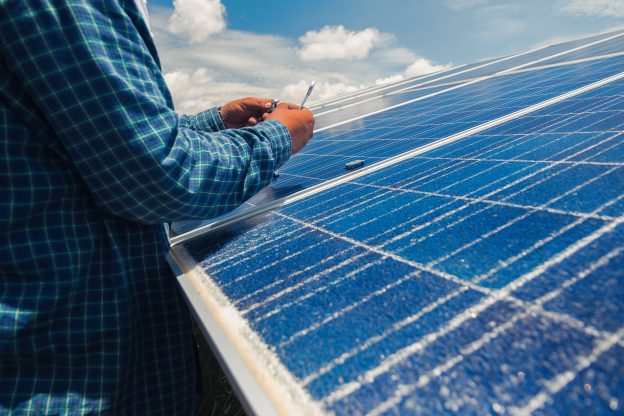
Taiwan’s government has further tightened its import regulations to prevent China-made PV cells and modules from entering the country. On 2 January, the Bureau of Foreign Trade, which is under Taiwan’s Ministry of Economic Affairs, announced that solar imports including PV cells and modules are barred from entering Taiwan if they are without the official certificate of origin and the approval issued by the relevant authority in the exporting country.
This measure, which became effective on 21 January, is intended to stop Chinese solar enterprises from rerouting their products through Taiwan and then to the US. It also bars the entry of solar products made by Chinese companies in factories located outside Mainland China.
Commenting on this development, EnergyTrend said that it is already very difficult for Chinese solar products to enter Taiwan, as the island has never opened its solar market to imports from Mainland. Furthermore, Taiwan’s government controls the sales of foreign PV modules in the domestic market by issuing a limited quantity of permits. EnergyTrend, which monitors the international solar market, is a division of the global research firm TrendForce.
The announcement from the bureau may be in response to product dumping by Chinese solar enterprises in the recent period. Although the US has been a major market for Chinese cells and modules, it is now cordoned off with huge trade barriers, such as the 30% tariff resulting from the Section 201 case. After the imposition of the Section 201 levy at the beginning of 2018, the Chinese government then enacted the 531 Policy in the middle of the same year. To put the domestic solar market on a sounder footing, the Chinese government made substantial cuts to the feed-in tariff rates and limited the building of new PV power plants across the country. Facing flatter demand growth at home and worsening trade relations with the US, Chinese solar enterprises are compelled to aggressively push their products into any available market channels around the world and sell PV modules at extremely low prices.
Competitors based in other countries have not really gained from the predicament that the Chinese manufacturers find themselves in, because the international market is now flooded with low-price modules. Apart from protecting the native solar industry, Taiwan’s government now wants to prevent Chinese companies from using the island as an intermediary hub so that they can avoid foreign tariffs.
Perhaps for these reasons, the Bureau of Foreign Trade has decided to forcefully declare a crackdown on solar imports of unknown origin. Ideally, foreign PV cells and modules without proper documentation should not be able to enter Taiwan from late January onward.
According to related news reports, Taiwan’s Ministry of Finance found that around 25% of the total PV cell imports in 2018 came from unknown locations, which together made up the third largest source of cell imports during the same period. The ministry also stated that up to 36% of the total PV module imports in 2018 came from unknown locations. Last year, the Customs Administration (an agency under the Ministry of Finance) adjusted its review of customs manifests in order to curb the trafficking of Chinese solar products that have become the targets of new US tariffs. With the escalation of the US-China trade dispute, the agency will keep focusing on filtering out Chinese imports that on the US tariff list. The Bureau of Foreign Trade will also be on the lookout for incidences where Chinese cells and modules are passed off as Taiwan-made products for the US market.
Verifying manufacturing locations and exporting countries is not only way to stop the re-export of China-made goods from Taiwan. Last year, the Bureau of Foreign Trade has demanded that domestically produced goods (e.g. bicycles, electric bicycles, machine tools, etc.) must include a government-issued certificate of origin if they are to be exported to foreign markets.
(This article is an English translation of news content provided by EnergyTrend’s media partner TechNews. Image Credit: Intel Free Press via Flickr CC BY 2.0)







